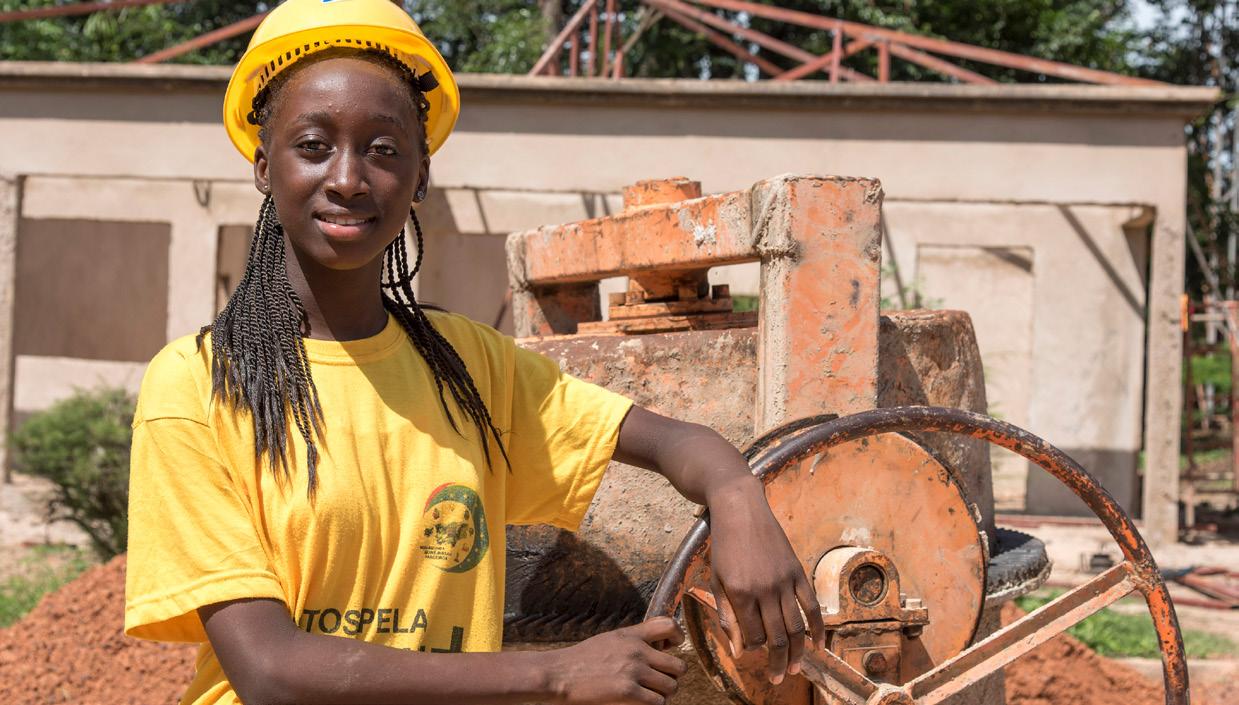
2 minute read
3.2 Youth employability
Young people all over the world have to cope with the challenge of becoming independent, following a (vocational) training and finding a decent job. But for young people from vulnerable families or without parental care this new phase in life is even more challenging. They cannot rely on the networks, resources or support to which their peers have access. SOS Children’s Villages has developed innovative ways, together with the young people themselves and partners, to safeguard a self-assured transition to independence. A challenge experienced all over the world
There are more than 64 million young people worldwide officially unemployed, and 145 million young people with a job live in poverty: they don’t earn enough to be able to cover their basic needs. A lack of work can have devastating consequences for young people, as it puts them at risk of poverty, social exclusion and exploitation. Communities and societies also suffer from the cyclic effects if young people fail to become contributing members of society. The importance of mentorship
Advertisement
A recent study, commissioned by SOS Children’s Villages International, found that young people who grew up without parental care are 1.5 times more likely to be unemployed and looking for work than those who grew up with parental care. While both groups face similar challenges in their search for work, the study indicated that those who grew up without parental care valued support networks more than their peers. Having a mentor (18% vs 12%) and having connections (23% vs 18%) were considered particularly important. Acquiring knowledge and experience
For this reason SOS Children’s Villages actively supports young people who grow up in care or in vulnerable families to become independent young adults. Our youth employment programmes offer young people the opportunity to gain relevant and practical experience and knowledge and the opportunity to work on their personal skills, all to increase their chance of success on the labour market. The young people themselves are closely involved; their voice and ideas about what they need and want to achieve are vitally important if they are to successfully take the step towards self-reliance.
The consequences of Covid-19 on youth employment programmes
The youth employment programmes had to endure months in which no training took place, no internships were organised and no gatherings could be held for networking activities and graduation ceremonies. For the young people concerned this also meant a sudden halt in their growth, in the momentum of their talent development and opportunities on the labour market. Many experienced insecurity and stress as a result.
“I was getting ready to graduate and was eager to start an internship in the hospitality sector when the pandemic hit. Suddenly I found the world and all its opportunities shut down. I returned to the youth house for a while, along with many other care leavers, the stress was palpable.” – Kawtar, care leaver
The activities are now restarting, taking the rules and adapted group sizes into account. Psychological support, extra guidance and encouragement will be part of these activities in order to limit any psychological effects of Covid-19.
Extending programmes










